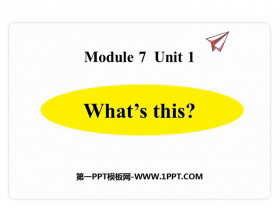


《I’d like some noodles》PPT课件6
A woman took her daughter to a restaurant, “What can I do for you?” the waiter asked. The answers are like this: hamburgers, ice cream, hot dogs, French fries, salad, tomatoes, broccoli, orange, bananas, strawberries, chicken, beef, sandwiches.
After a while, the waiter brought them for her. She said: “I haven’t ordered, I have read the menus for my daughter.”然后设问如何订餐。
... ... ...
Tapescript
Boy: Hello, I’d like some noodles.
Waitress: What kind of noodles would you like?
Boy: Beef and tomato noodles, please.
1C PAIRWORK
Practice the conversation below. Then make your own conversations.
A: Hello, I’d like some noodles.
B: What kind of noodles would you like?
A: Beef and tomato noodles, please.
... ... ...
Homework
配制一份一日三餐健康的菜谱
For example:
It’s good to have a glass of milk, some bread, porridge, an apple and an egg for breakfast.
2b Listening
I’d like a _____ bowl of noodles.
I’d like _______, ______ and _______ noodles, please.
I’d like a _______ bowl.
I’d like ____ and ______ noodles, please.
... ... ...
Grammar
名词可分为可数名词和不可数名词。可数名词有单复数之分, 前面可加数词或冠词。
可数名词包括:
(1) 普通名词;(2) 集体名词;(3) 少数专有名词。
如: boy, book, family 等都是可数名词。
普通名词
普通名词是一类人或东西或是一个抽象概念的名称。
如: boy, office, idea, book, mile 等。
1. 普通名词受代词或所有格修饰时, 不再加冠词。
如: this (my, every, each, John's) book, our books。
2. 复数普通名词可用 many, few, a few, a lot of 等修饰; 不用 much, little 等修饰。
集体名词
1. 集体名词是表示由若干个体组成的集合体的名称。
如: family, class, police, cattle, clothing, jewelry 等。
2. 集体名词用 many, few, a few, a lot of 等修饰, 不用 much, little 修饰。
可数名词复数变化规则
1) 单数名词加 s: students, apples, bags, trees, books, brothers.
2) 以 s、x、sh、ch 结尾的名词加 es: glasses, boxes, brushes, matches.
3) 以辅音字母加 y 结尾的名词, 变 y 为 i 加 es: cities, babies, enemies.
... ... ...
练习坊
请根据以下词汇分类要求, 每组写出3个属于该类别的英文单词。
1. Vegetables: _________________
2. Food: ___________________
3. Meat: ___________________
4. Fruit: ____________________
5. Sizes: ____________________
关键词:《I’d like some noodles》教学课件,人教版七年级下册英语课件,七年级英语幻灯片课件下载,《I’d like some noodles》PPT课件下载,.ppt格式












